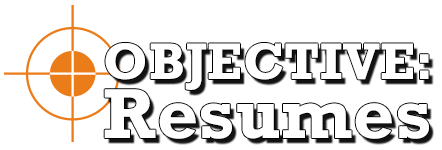Armed only with their college degrees, future graduates attempting to enter the workforce will find this economy a harsh reality. Employers seek not merely a degree but real-world experience on student resumes; they need to deduce potential contributions of prospective staff members, based upon evaluations of candidates’ experiences and accomplishments. Enrolled in full-time curricula and frequently hustling unrelated, part-time jobs, students confront the dichotomy and challenge of presenting employers with germane, practical experience.  College internships are more than the critical progression from knowledge gained solely in the classroom to on-the-job exposure to one’s chosen field. For a student, they are the vital distinction between these two elements.
Internships, therefore, are the hub of student resumes. As the culmination-to-date of one’s education, internships allow the student to present learning-in-action beyond the restrictive language of a formal job description. No one works in a vacuum; directly or indirectly, every job title impacts an internal business process or processes, and/or an external client base. This information represents fundamental performance metrics by which employers judge students’ worth in the business arena. If you have not yet attained your degree and lack relevant experience, it is not enough to state on your student resume that you accurately processed 500 purchase orders in an 8-hour period. Does that number equate to your surpassing a goal or underachieving? Who placed those purchase orders, and what do the sales represent? Consider this statement as presented on a resume: “Processed 500 orders daily, against departmental goal of 275, for a customer base of electronics manufacturers generating $17.2 million in annual sales.” Qualifying and, whenever possible, quantifying your information will give employers a broader picture of your initiative and bottom-line contributions on your student resume. It gives hiring managers the impetus to schedule an interview with you!
In preparing student resumes, one must not negate the importance of a cover letter. The prevalence of the Internet has, at its most basic, facilitated the gathering, transmission, and analysis of a huge amount of data spanning myriad topics. What it has not done is hone the language skills of students who grew up using computers. Employers seeking new blood are keenly aware of this. Knowing that cover letters are narratives as well as introductions into resumes, hiring managers often use cover letters as gauges for applicants’ written language skills. In addition to being succinct and meaningful, the structure, grammar, spelling, and punctuation of your cover letter must be perfect. If they are not, your opportunities for securing interviews will significantly dwindle. In this economy, no employer has the luxury of leaving a report, a presentation, or an email open to misinterpretation or ridicule by an executive manager or an account that generates revenue.
Now that you understand the value of internships as the key marketing tool on an effective student resume and cover letter, we will examine, in Chapter Two of this series of articles, the mechanics and strategies involved in securing internships in an ailing economy.
Similar Articles resume content
- Your Resume: Succinct and Boring or Detailed and Powerful? - May 13th, 2010
- Must I Customize My Resume for Each and Every Job? - March 24th, 2010
- Key in Those Keywords - November 10th, 2009
- By Any Other Name - November 3rd, 2009
- The Awards Ceremony - October 30th, 2009
Similar Articles resume writing
- Your Resume: Succinct and Boring or Detailed and Powerful? - May 13th, 2010
- Must I Customize My Resume for Each and Every Job? - March 24th, 2010
- Key in Those Keywords - November 10th, 2009
- Resumes for Writers - October 27th, 2009
- Spruce It Up! - October 23rd, 2009

